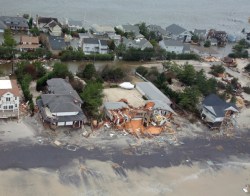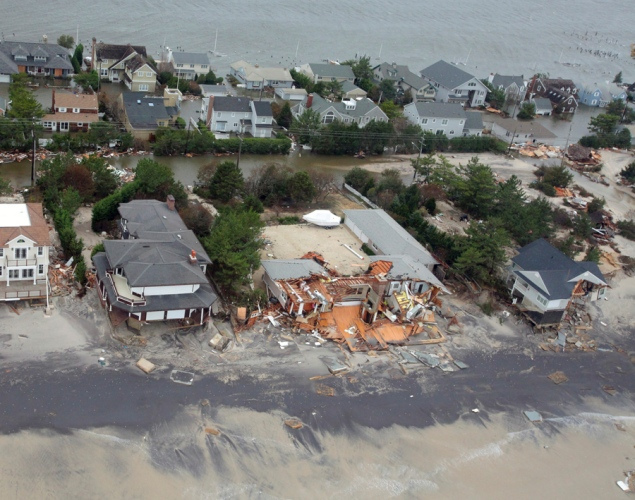
SandyReliefToo many insurance companies aren’t connecting the dots.
Insurance companies have been paying out big bucks of late, funding cleanup in the wake of wildfires, hurricanes, and other extreme weather events likely made worse by global warming. Superstorm Sandy caused an estimated $50 billion in economic losses, and it was just one of 11 American catastrophes in 2012 that wrought more than $1 billion worth of destruction.
So one would logically think that insurance companies would be among the most clued-in businesses when it comes to understanding and bracing for humanity’s horrendous effects on the weather.
Not so, according to the results of an industry-wide survey of 184 insurance companies that operate in California, New York, and Washington state.
From a report published by CERES [PDF], the nonprofit that administered the survey:
In general, almost all companies responding to the survey show significant weakness in their preparedness to address the effects climate change may have on their business. However, a small subset of industry leaders are evolving their business strategies to remain competitive as the impacts of climate change unfold. Given the strong scientific consensus on climate change, the rest of the industry would be well advised to follow the lead of these innovative companies.
Two of the biggest laggards in acknowledging climate reality: Allstate and Travelers, which “express strong ambivalence about the state of the science — specifically, the existence of climate change and what is causing it,” CERES says.




